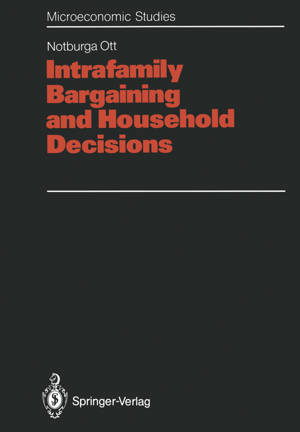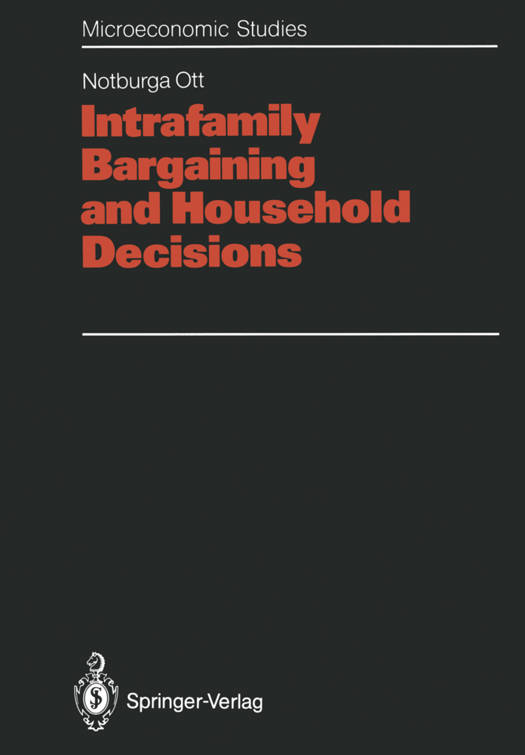
Bedankt voor het vertrouwen het afgelopen jaar! Om jou te bedanken bieden we GRATIS verzending (in België) aan op alles gedurende de hele maand januari.
- Afhalen na 1 uur in een winkel met voorraad
- In januari gratis thuislevering in België
- Ruim aanbod met 7 miljoen producten
Bedankt voor het vertrouwen het afgelopen jaar! Om jou te bedanken bieden we GRATIS verzending (in België) aan op alles gedurende de hele maand januari.
- Afhalen na 1 uur in een winkel met voorraad
- In januari gratis thuislevering in België
- Ruim aanbod met 7 miljoen producten
Zoeken
Omschrijving
A model of household decisions based on a bargaining approach is developed providing a comprehensive framework for the analysis of family behavior. Treating the family as an economic organization, household behavior is explained by the cooperation of utility maximizing individuals. The difference to traditional microeconomic household models is that theassumption of a joint household utility function is abandoned. Instead of this, a game theoretic approach is used to model family decisions as a result of intrafamily bargaining. Considering the development of the spouses` human capital in a dynamic approach, the long-term effects of intrafamily specialization in market work and work at home are analyzed. Onemajor finding is that in a dynamic setting non-Pareto efficient allocations may result. Empirical tests demonstrate the relevanace of the bargaining approach.
Specificaties
Betrokkenen
- Auteur(s):
- Uitgeverij:
Inhoud
- Aantal bladzijden:
- 242
- Taal:
- Engels
- Reeks:
Eigenschappen
- Productcode (EAN):
- 9783642457104
- Verschijningsdatum:
- 17/02/2012
- Uitvoering:
- Paperback
- Formaat:
- Trade paperback (VS)
- Afmetingen:
- 170 mm x 244 mm
- Gewicht:
- 408 g

Alleen bij Standaard Boekhandel
+ 263 punten op je klantenkaart van Standaard Boekhandel
Beoordelingen
We publiceren alleen reviews die voldoen aan de voorwaarden voor reviews. Bekijk onze voorwaarden voor reviews.









